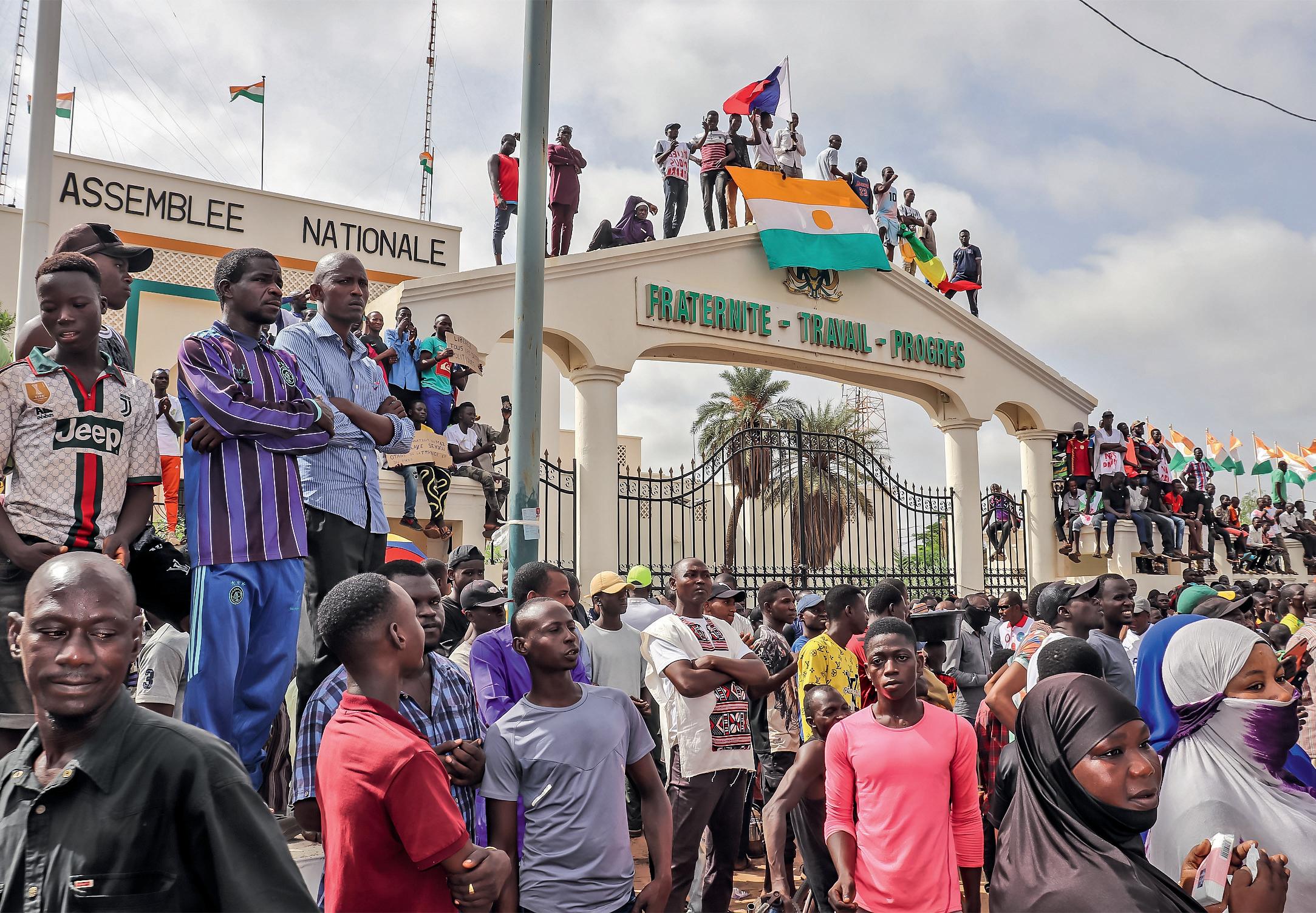
The traveller's route would take them from the northern Ethiopian region of Tigray, at war until last year, then across Sudan, where an internal power struggle within a repressive regime has metastasised into violence, and into the Central African Republic, now seen by many as the best example of the worst that can befall a nation.
After this comes a difficult choice. A northern route could go via Chad, ruled by a 39-year-old soldier who seized power in 2021 when his father was killed in battle after three decades in power, and Mali, racked by insurgencies, Islamic extremists and Russian mercenaries hired by the second military ruler to take power in recent years. Another itinerary could take in Cameroon, convulsed by a civil war, and Burkina Faso, which suffered two military coups in 2022 alone. Either way, our traveller would need - along with some expensive insurance and much luck the means to cross the state of Niger, which has become the latest country to fall prey to what now appears to be endemic instability.
Quite what triggered this upheaval in the Sahel remains unclear. Only months ago, the US secretary of state, Antony Blinken, described Niger as a "model of democracy". This was based on the success of its president, Mohamed Bazoum, a broadly pro-western moderniser who won more than 55% of the vote in elections in 2021 to become the country's first leader to take power peacefully since independence from France in 1960.
This story is from the August 11, 2023 edition of The Guardian Weekly.
Start your 7-day Magzter GOLD free trial to access thousands of curated premium stories, and 9,000+ magazines and newspapers.
Already a subscriber ? Sign In
This story is from the August 11, 2023 edition of The Guardian Weekly.
Start your 7-day Magzter GOLD free trial to access thousands of curated premium stories, and 9,000+ magazines and newspapers.
Already a subscriber? Sign In

The Saudi football World Cup is an act of violence and disdain
Well, that's that then. In the event there were only two notes of jeopardy around Fifa's extraordinary virtual congress last week to announce the winning mono-bids, the vote without a vote, for the right to host the 2030 and 2034 football World Cups.

AI has made the move into video and it's worryingly plausible
I recently had the opportunity to see a demo of Sora, OpenAI's video generation tool, which was released in the US last Monday, and it was so impressive it made me worried for the future.

With tyrant Assad ousted, Syrians deserve support and hope
Last week, time collapsed. Bashar al-Assad's fall recalled scenes across the region from the start of the Arab spring almost 14 years ago. Suddenly history felt vivid, its memories sharpened. In fact it no longer felt like history.

TV
The Guardian Weekly team reveals our small-screen picks of the year, from the underground vaults of post-apocalyptic Fallout to the mile-high escapism of Rivals

Albums
Murky love stories, nostalgic pop and an in-your-face masterpiece captured our critics' ears in 2024

Film
Visual language, sound, light and rhythm are to the fore in the best movies of the year

Hidden delights Our 24 travel finds of 2024
Guardian travel writers share their discoveries of the year, from Læsø to Lazio

'It's really a disaster' The fight to save lives as gang war consumes capital
Dr James Gana stepped out on to the balcony of his hospital overlooking a city under siege. \"There's a sensation of 'What's next?'. Desperation is definitely present,\" the Médecins Sans Frontières (MSF) medic said, as he stared down at one of scores of camps for displaced Haitians in their country's violence-plagued capital.

Trailblazers The inspiring people we met around the world this year
From an exuberant mountaineer to a woman defiantly facing the guns of war, here are some of the brave individuals who gave us hope in a tumultuous 2024

Votes of confidence
From India to Venezuela and Senegal to the US, more people voted this year than ever before, with over 80 elections across the world. With rising authoritarianism and citizen-led resistance revealing its vulnerabilities and resilience in the face of unprecedented challenges, has democracy reached its breaking or turning point?